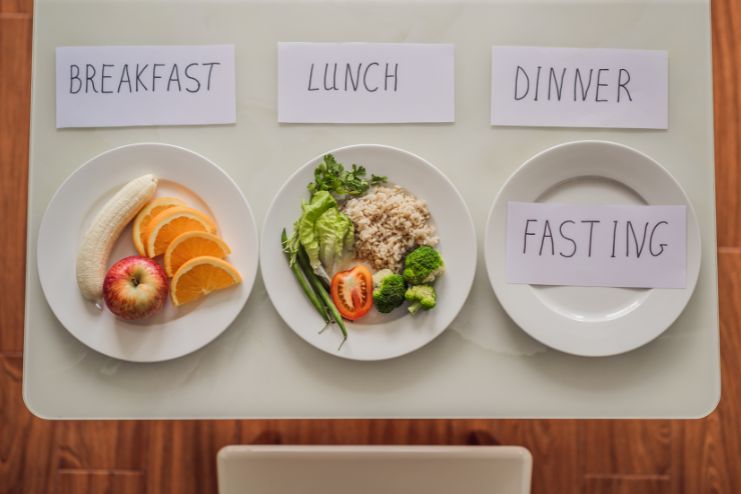Affiliate Disclaimer
Some links in this article are affiliate links. We may earn a small commission if you make a purchase through these links, at no extra cost to you. We only recommend products we find useful to our readersFasting has been practiced for centuries, from religious observances like Ramadan and Hindu festivals to modern-day health trends. But beyond its spiritual significance, fasting also impacts your body in surprising ways, such as boosting metabolism, supporting cell repair, and even influencing longevity. Of course, it’s not without risks.
In this article, we’ll dive into the science behind fasting, its potential benefits, and what to watch out for to ensure you do it safely.
What Is Fasting?
Fasting is the practice of abstaining from all or some foods and beverages for a specific period. While it has gained popularity as a dietary trend today, fasting has been a part of human culture for centuries and is recognized as one of the oldest treatments in medicine.
Whether it involves complete food abstinence or simply reducing calorie intake, many believe that our bodies are naturally equipped to endure periods without eating.
You may also hear of “intermittent fasting” or “time-restricted eating,” both of which refer to eating habits that prolong the time your body spends in a fasted state. This is done by reducing your “eating window,” or the time frame in which you eat.
Another intermittent fasting method, known as the 5:2 approach, involves eating normally five days a week while significantly reducing calorie intake on the other two days. On these fasting days, you consume just one meal of 500–600 calories. For example, you might follow your regular diet throughout the week except on Mondays and Thursdays, when you restrict yourself to a low-calorie diet.
Fasting reduces insulin levels, making it easier for the body to burn fat and lowering insulin resistance. Obesity is a high-risk factor for type 2 diabetes, so weight loss will enhance insulin sensitivity and normalize blood glucose levels.
Dr. Michael Mosley, author of The Fast Diet books, points out that fasting will lead to weight loss and has other health benefits, including improved blood pressure, insulin control, and cholesterol.
A longer period of fasting i.e. for 2-4 days may reboot the immune system, which means flushing out the old cells and regenerating new ones. This process protects against cell damage due to chemotherapy or aging.
Top 10 Benefits of Fasting

Fasting, backed by science and practiced for ages, has immense health benefits. Here are a few significant benefits of fasting:
1. Helps Reduce Weight:
During a fast, the body is deprived of energy from food and begins tapping into stored glucose in the muscles and liver. This process typically starts about eight hours after your last meal. Once glucose reserves are depleted, the body shifts to burning fat for energy, leading to weight loss. Additionally, fasting can help preserve muscle mass and support lower cholesterol levels.
2. Detoxifies The Body:
Fasting also aids detoxification through fat breakdown, releasing and flushing out stored toxins from the body. After several days of fasting, the body boosts the release of endorphins, or “feel-good” hormones, which may have a direct beneficial impact on mood and mental health. Furthermore, extended fasting encourages the rejuvenation of immune cells, which is overall beneficial for health.
3. Improves Eating Habits:
Fasting can help individuals struggling with binge eating or irregular meal patterns by promoting a more structured approach to eating, especially for those with demanding schedules.
4. Facilitates Gut Health:
Studies indicate that fasting can increase the diversity and richness of healthy gut bacteria. This, in turn, could benefit metabolism, weight, and waistline.
5. Encourages Heart Health:
Intermittent fasting can reduce major risk factors for heart disease, such as blood pressure, cholesterol, and inflammatory markers.

6. Helps Prevent Disease:
Restriction of food intake enables the body to concentrate on core processes, such as disease prevention. Fasting induces autophagy, the body’s natural “housekeeping” function, which eliminates cellular waste. The process is thought to minimize chronic inflammation and decrease the risk of diseases such as heart disease, multiple sclerosis, and rheumatoid arthritis.
7. Delays Aging and Benefits Metabolism:
Fasting, especially with a low-protein diet, has been associated with a longer lifespan in animal research. It also boosts human growth hormone (HGH), which is important for metabolism, muscle strength, weight loss, and tissue healing. Although promising, the majority of longevity research relies on animal research, and further human trials are required.
8. Resets Your Circadian Rhythm:
Fasting seems to impact gut bacteria, which, in turn, impact metabolites that talk to the body’s internal clock. This could regulate circadian rhythms and enhance conditions associated with an irregular body clock, including obesity.
9. Supports Brain Function:
Research indicates that fasting can boost brain health by shielding against neurodegenerative disorders such as Alzheimer’s and Parkinson’s. Fasting can also enhance memory and thought processing by facilitating the growth of nerve cells. However, human studies are necessary to affirm these impacts.
10. Reduces Anxiety and Improves Mood:
Research shows that fasting can reduce anxiety and depression symptoms and promote more feelings of social bonding. While more studies are warranted, results thus far are promising.
5 Possible Risks Of Fasting

Although fasting has been linked with several health benefits, be aware of possible dangers:
1. Galls tone Risk:
Frequent fasting for more than 16 to 18 hours a day has been associated with an increased rate of gallstones, commonly requiring gallbladder removal surgery.
2. Tumor Formation Potential:
Fasting was found to boost the regenerative potential of intestinal stem cells in mouse models, facilitating the repair of tissue. This increased activity also came with a greater danger of early intestinal tumors when there were cancerous mutations.
3. Impaired Hair Growth:
Fasting can slow down hair growth. In mice and human studies, fasting diets were linked to slowed hair regrowth and possible thinning, perhaps because of impacts on hair follicle stem cells, and a decrease in protein intake.
4. Nutrient Deficiencies and Eating Disorders:
Long periods of fasting can result in nutritional deficiencies and may trigger or worsen disordered eating habits, like binge eating, particularly among people who have had a history of eating disorders.
5. Not Suitable For Everyone:
Fasting might not be safe for pregnant or breastfeeding women, some people with certain health conditions, or those on particular medications. It’s also important to consult with a medical doctor before any type of fasting program.
With these possible risks in mind, it’s important to be careful when fasting and consult with your medical professional to make sure it’s safe and suitable for your health situation.
Final Thoughts

Fasting is far from a passing trend – it’s an ancient practice that has been validated by modern science. From promoting weight loss and improving metabolic health to boosting cognitive function and potentially increasing longevity, fasting offers a wide range of benefits.
However, it’s important to remember that fasting is not a one-size-fits-all approach. It’s essential to recognize the potential risks, such as nutrient deficiencies, gallstones, and even hair loss, particularly if done improperly or without guidance.
The key to fasting safely and effectively lies in personalization. Understanding your body’s unique needs, choosing a fasting method that aligns with your lifestyle, and consulting with a healthcare professional when necessary can ensure that you experience the benefits while minimizing any potential drawbacks.
If you’re considering incorporating fasting into your routine, start slow, listen to your body, and prioritize your overall health. Fasting can be a powerful tool, but it’s most effective when approached mindfully and with the proper knowledge. Ready to explore fasting for better health? Speak to a healthcare provider today and find a plan that works for you!
-
Dec 2017Written by Sumana Maheswari
-
Mar 2025Edited by Vaishnavi
References
- https://time.com/7199885/is-intermittent-fasting-good-for-you/?utm_source=chatgpt.com
- https://news.mit.edu/2024/study-reveals-fasting-benefits-and-downside-0821?utm_source=chatgpt.com
- https://newsinhealth.nih.gov/2019/12/fast-or-not-fast?utm_source=chatgpt.com
- https://www.medicalnewstoday.com/articles/295914
- https://pmc.ncbi.nlm.nih.gov/articles/PMC9530862/
In this Article


















